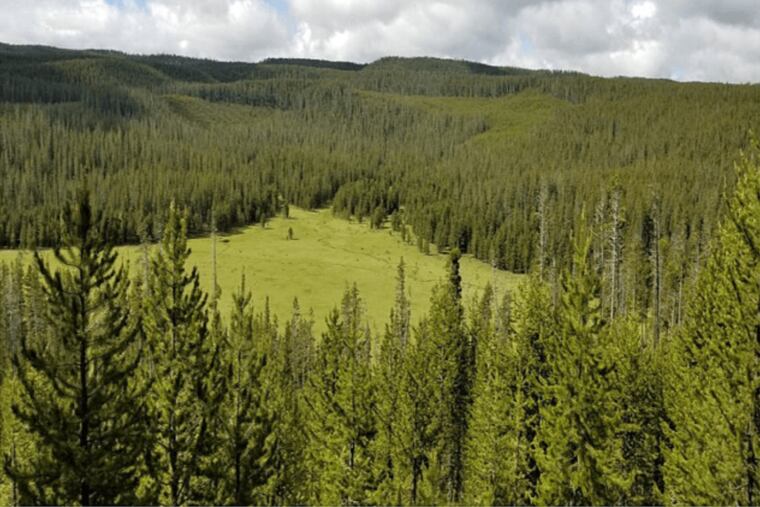Carole King: How Pennsylvanians can help protect an amount of public land nearly the size of their state
As an environmental activist, I was heartened by the reintroduction of the Northern Rockies Ecosystem Protection Act. This important piece of legislation needs the support of Americans everywhere.

Whenever I visit Pennsylvania, I’m always grateful to receive a warm welcome. I remember walking in Philadelphia near Rittenhouse Square on a day off when I tripped on a sidewalk made uneven by the roots of a very old tree. Several passersby stopped to make sure the stranger who had tripped was OK. Of course, they did. They were Pennsylvanians of goodwill.
Among such people in the commonwealth, I’ve come to know U.S. Rep. Madeleine Dean, who represents Pennsylvania’s 4th Congressional District.
As an environmental activist and longtime advocate for preserving our nation’s wild places, I was heartened by the recent reintroduction of the Northern Rockies Ecosystem Protection Act by Dean and Rhode Island Sen. Sheldon Whitehouse.
This visionary legislation in the House (HR 2420) and Senate (S 1198) will preserve 23 million acres of public land across Idaho, Montana, Washington, Oregon, and Wyoming — land that serves as critical habitat for endangered and threatened species. Compare these protected 23 million acres to the land area of Pennsylvania, 44,741.7 square miles, about 28.6 million acres.
The bill, which is known by its acronym NREPA (say: Ner-EE-pa), was written by prominent scientists who lived and worked in the Northern Rockies, including John Craighead, named among the top 100 figures in conservation in the 20th century. When enacted, NREPA will establish biological corridors to connect the region’s core wildlands into a functioning ecological whole that will sustain biodiversity. And, by preserving a vast, efficient, no-cost carbon storage system in the form of interconnected living trees and the soil beneath them, NREPA is a large-scale climate solution.
Without NREPA’s protection, this is happening on national forest land owned by all Americans.
Taxpayers have been subsidizing clear-cutting in our national forests for decades with money allocated to the Forest Service. Often, such provisions are included in must-pass bills.
In recent years, billions have been allocated to facilitate wide-reaching commercial logging in American national forests under the guise of euphemisms such as “restoration,” “wildfire risk reduction,” “strategic treatment,” and “hazardous fuels management.”
I’ll bet you and your neighbors could use some of that money in your community for healthcare, childcare, good quality schools, support for veterans, and so much more.
Let me be clear. Many of my neighbors in Idaho are Forest Service employees who maintain trails and outhouses, educate visitors about forests and species, and risk their lives to contain wildfires. I support those workers.
NREPA will save taxpayers money and preserve wild places that will continue to give us a deep sense of our relationship to the universe, fill us with wonder, and inspire generations to come.
The direness of the climate crisis demands action now, and the leadership of these legislators in introducing NREPA exemplifies the proactive stance we need from our elected officials.
I applaud Dean and Whitehouse for taking this action. I hope more of their colleagues in Congress are inspired to stand up to the coalition of the entitled and be fearless in fighting for people of goodwill and the planet that sustains us all.
Dear reader, I hope you, too, are inspired. Stay involved and never give up.
Carole King, an environmentalist, composer, lyricist, and author, has written or cowritten more than 100 songs that have appeared on the Billboard Hot 100 charts. She is the winner of four Grammy Awards and the Library of Congress Gershwin Prize for Popular Song. She is a member of the Songwriters Hall of Fame, and has been inducted twice into the Rock and Roll Hall of Fame — first a songwriter and later as a performer.